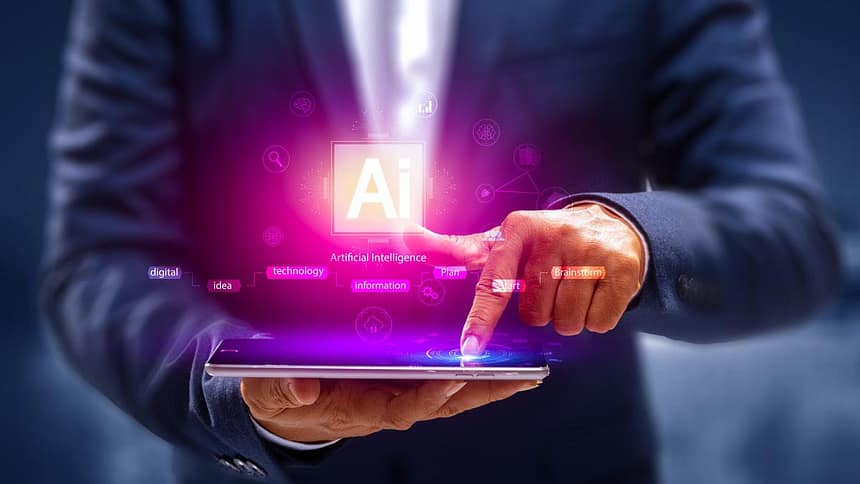If you’ve been hoping for clarity from the US Copyright Office on AI training — whether AI companies can use copyrighted materials under fair use or creators can claim infringement — prepare to be disappointed. The Office released its third report on Friday, and it’s not the major win tech companies hoped for, nor the full block some creators sought.
The US Copyright Office set out in 2023 to release a series of reports, guidance for creators, dealing with the myriad of legal and ethical issues that arise from AI-generated content from software such as ChatGPT, Gemini, Meta AI and Dall-E. In previous reports, the Copyright Office ruled that entirely AI-generated content can’t be copyrighted, while AI-edited content could still be eligible. These reports aren’t law, but they give us a picture of how the agency is handling copyright protections in the age of AI.
The third report, available now, isn’t the final report; it’s a “prepublication” version. Still, there won’t be any major changes in the Copyright Office’s analysis and conclusions in the final report, according to its website, so it does give us a good understanding of the guidance it will offer for future claims.
The 108-page report deals primarily with copyright concerns around the training of AI models — specifically, whether AI companies have legal footing to ask for a fair-use exception, which would let them use copyrighted content without licensing or compensating the copyright holders.
In short, the Copyright Office didn’t rule out the possibility of a fair-use case for companies using copyrighted material for AI training. But there are a couple of important things that would be a metaphorical strike against a fair-use case, which the report spells out in detail. So it’s also possible that an AI company found to be using copyrighted material without the author’s permission could be grounds for a copyright infringement claim. It depends on the AI model, how it’s used and what it produces.
“On one end of the spectrum, uses for purposes of noncommercial research or analysis that do not enable portions of the works to be reproduced in the outputs are likely to be fair,” the report says. “On the other end, the copying of expressive works from pirate sources in order to generate unrestricted content that competes in the marketplace … is unlikely to qualify as fair use. Many uses, however, will fall somewhere in between.”
The Copyright Office, which is part of the Library of Congress, is the subject of current political controversy. CBS News reports that the department’s head, Shira Perlmutter, known as the Register of Copyrights, was fired by President Donald Trump this past weekend. This was a few days after Trump fired the Librarian of Congress, Carla Hayden, on Thursday. Hayden was the first woman and first African American to hold the position.
Here’s what the Copyright Office wrote on fair use and what you need to know about why the legal web of AI and copyright continues to grow.
Why does fair use matter?
Tech companies have been pushing hard for a fair-use exception. If they’re granted such an exception, it won’t matter if they have and use copyrighted work in their training datasets. The question of potential copyright infringement is at the center of more than 30 lawsuits, including notable ones like The New York Times v. OpenAI and Ortiz v. Stability AI. (Disclosure: Ziff Davis, CNET’s parent company, in April filed a lawsuit against OpenAI, alleging it infringed Ziff Davis copyrights in training and operating its AI systems.)
The Copyright Office said in its report that these cases should still continue in the judicial system: “It is for the courts to weigh the statutory factors together,” since there’s “no mechanical computation or easy formula” to decide fair use.
Writers, actors and other creators have pushed back equally hard against fair use. In an open letter signed by more than 400 of Hollywood’s biggest celebrities, the creators ask the administration’s office of science and technology policy not to allow fair use. They wrote: “[America’s] success stems directly from our fundamental respect for IP and copyright that rewards creative risk-taking by talented and hardworking Americans from every state and territory.”
For now, it seems we have only a few more answers than before. The big questions around whether specific companies like OpenAI have violated copyright law will have to wait to be adjudicated in court.
Guidance on deciding on fair use
Fair use is part of the 1976 Copyright Act. The provision grants people who are not the original authors the right to use copyrighted works in specific cases, like for education, reporting and parody. There are four main factors to consider in a fair-use case: one, the purpose of the use; two, the nature of the work; three, the amount and substantiality used; and four, the effect it has on the market. The Copyright Office’s report analyzes all four factors in the context of AI training.
One important aspect is the transformativeness of the work, which is whether AI chatbots and image generators are creating outputs that are substantially different from the original training content. The report seems to indicate that AI chatbots used for deep research are sufficiently transformative. But image generators that produce outputs in too similar a style or aesthetic to existing work might not be.
The report says guardrails that prevent the replication of protected works — like image generators refusing to create popular logos — would be evidence that AI companies are trying to avoid infringement. This is despite the fact that the office cites research that proves those guardrails aren’t always effective, as OpenAI’s Studio Ghibli image trend clearly demonstrated.
The report argues that AI-generated content clearly affects the market, the fourth factor. It mentions the possibility of loss of sales, diluting markets through oversaturation and loss of licensing opportunities for existing data markets. However, it also mentions the potential for public benefit from the development of AI products.
Licensing, a popular alternative to suing among publishers and owners of content catalogs, is also highlighted as one possible pathway to avoid copyright concerns. Many publishers, including the Financial Times and Axel Springer brands, have struck multimillion-dollar deals with AI companies, giving AI developers access to their high-quality, human-generated content.
There are some concerns that if licensing becomes the sole way to attain this data, it will prioritize the big tech companies that can afford to pay for that data, boxing out smaller developers. The Copyright Office writes that those concerns shouldn’t have an effect on fair-use analyses and are best dealt with by antitrust laws and the agencies that enforce them, like the Federal Trade Commission.





